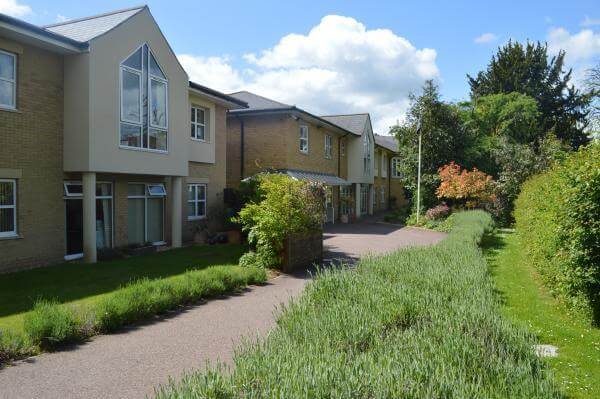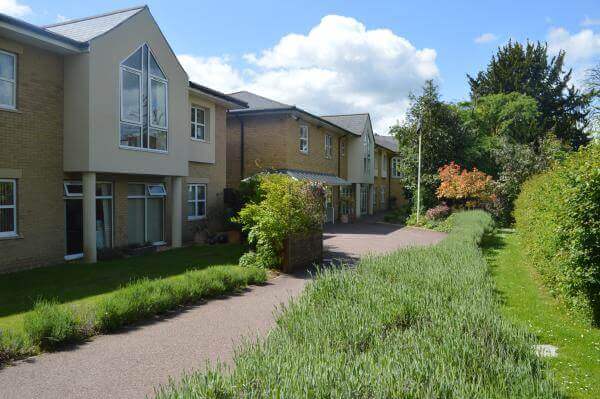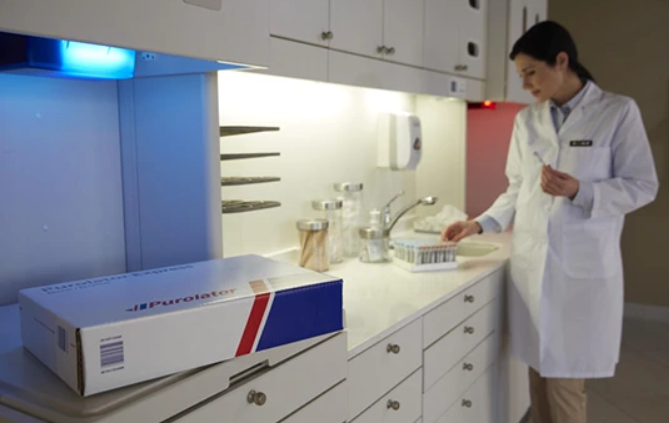
Clare Periton is the CEO of Helen & Douglas House, the world’s first children’s hospice based in Oxford. Previously Director of Clinical Services, Clare was made Chief Executive in 2015 after ten years at the Hospice. Clare currently lives in Oxford with her two daughters, and writes for Global Health & Pharma magazine about running a hospice and her thoughts on the importance of having a coordinated health and social care system.
It is a huge privilege and I feel immense pride to be part of a sector that is frequently heralded for the essential services that it provides. I am equally proud that the UK has been acclaimed as the world’s best provider of palliative care. The hospice is an incredibly positive and happy place to be, which many people don’t expect. Of course we have our sad days, but we endeavour to create an atmosphere for the children and young adults, and their families, where they can be happy, live their lives and help them when they want to talk about death. Remarkably many of them do want to know what is going to happen and do not want to shy away from it.
Running a hospice is also a huge challenge and it is essential to have a team that works well together in order for us to deliver our high standard of care. Within the hospice we all have many different roles, whether it is in finance, retail, human resources or care that people work, they all contribute to the service that we provide. To all be able to do our jobs as best as we can, it is advantageous to have a team where everybody gets on and respects each other. It is in this kind of environment that people can flourish and excellence can be aimed for and often achieved.
On the challenges of maintaining a work/life balance
Being a single mother of two, it is crucial that I make sure I have balance in both sides of my life, both with my family at home and at the hospice. Professionally, I have tried to learn as much as I can over the years, both academically and from experiences, and not to beat myself up when things go wrong (whilst of course taking accountability appropriately). It is a skill that is so important in this sector, in both the business and the care aspects and one that I have managed to practice through my nursing and management career. When a relatively junior nurse I learnt about the concept of ‘reflective practice’ and I commend it to anyone. Nurses can spend a lot of time dwelling over patient’s cases and thinking what we could have done differently, but reflective practice helps to make sense of the situation and to reflect on what happened and what they could change next time in order to improve care or the management of a situation.
When it comes to my family life, I try to let my children understand what I do and give time back to them as much as I can. I ensure I pick them up at normal time from school at least once a week and we also try to do something special together each week, like a film night or a sleepover night where the kids invite their friends round and I cook with them. It is amazing how having children gives one a sense of perspective and makes you more organised with your time. No matter what, unless I have made other plans in advance, I need to pick up my children by 6pm each day and this really puts things into order and makes me plan my day efficiently and switch off from the day job.
I am extremely lucky to have an amazing and strong team around me and I have always made a point of employing people that have complementary skills to me and who ‘get’ what we are trying to do. It is empowering to work around people who are aiming to be the best they can be, so that we can provide a high quality of care for all the children and young adults who use the services of Helen & Douglas House.
On the importance of having a coordinated health and social care system
In the past Helen House (one of the two houses which forms the hospice) used to be slightly insular and I wanted to challenge this when I joined ten years ago. I am naturally a very collaborative person and see great advantages in this style of practice. Working as a District Nurse and Health Visitor, I have experience of working in a community team and being part of the team around the child. On joining Helen & Douglas I realised that it can be easy, when we have the luxury of working one to one with a child, to forget that there are other nurses or professionals working with this child and family. Not only do they bring different t skills, but they are often having to juggle other priorities and challenges; it is therefore crucial that we all acknowledge the different roles that we play.
We always strive for better coordination of a person’s care. This often includes meeting face-to-face and encouraging people to pick up the phone rather than emailing, in addition to thinking pragmatically and using skills appropriately. We try to recognise that everybody has different skills and how to utilise these to their best potential. It is hugely beneficial for the right people from all the different teams to be involved in a child or young adults care, as this provides the best outcomes and the best quality of care.
It is also essential for us to be able to identify when we are not the right place for a child or young adult and this needs excellent working with the family and the other health care and social care professional whether they be in the community, or other hospices or hospital units.


















